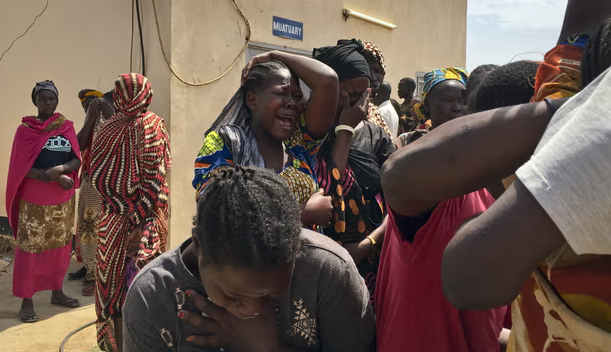The UN’s Office for the Coordination of Humanitarian Affairs (OCHA) has said South Sudan tops the list of most dangerous countries for aid workers in the world, and the humanitarian crisis deepens amid mounting needs, access constraints, and lack of funding.
In a statement to commemorate World Humanitarian Day on 19 August, OCHA noted that with 40 attacks on aid workers so far this year, South Sudan has recorded the highest number of attacks against aid workers, according to the 2023 Aid Worker Security Report.
The attacks left 22 aid workers dead and 36 injured.
“Too many humanitarians, most of them South Sudanese nationals, have lost their lives while trying to alleviate the suffering around them,” said Peter Van der Auweraert, Acting Humanitarian Coordinator for South Sudan. “As we mark World Humanitarian Day, we honor their memory and pay tribute to their dedication and selflessness,” he added.
The statement said that Across South Sudan, humanitarian workers, mostly national staff, face severe constraints while trying to reach people in need: armed violence, bureaucratic impediments, operational interference, targeted violence, and threats, and looting of assets.
“Most security incidents were recorded in Jonglei State and the Greater Pibor Administrative Area, Upper Nile State, Unity State, Central Equatoria State, Western Bahr el Ghazal State, and the Abyei Administrative Area,” the statement read in part. “Between February and June 2023, criminal activities, particularly ambushes, looting of commercial and humanitarian trucks, and insecurity between Jonglei State and the Greater Pibor Administrative Area hindered the pre-positioning of supplies ahead of the rainy season, and forced a temporary halt in some humanitarian operations.”
According to OCHA, incidents against aid workers continue even as humanitarian needs increase and funding lags.
“Some 9.4 million people in the country – more than two-thirds of the population – need humanitarian and protection assistance. Humanitarians require US$1.7 billion to target 6.8 million of the most vulnerable people. As of 16 August, the humanitarian response plan is funded only at 43.8 percent,” the statement said. “In addition, the conflict in neighboring Sudan has triggered an influx of over 220,000 refugees, returnees, and third-country nationals into South Sudan since April. The overcrowding at border points, transit centers, and the Protection of Civilians site in Upper Nile State is likely to increase tensions and conflict over access to basic services and resources.”
“The vulnerable returnees, particularly women, children, and the elderly, will be further exposed to protection and serious health risks,” it added.
“The lack of a conducive environment for humanitarian workers significantly affects vital life-saving support to the most vulnerable, especially now as new crises put additional strain on the already fragile humanitarian situation,” said Van der Auweraert. “The people of South Sudan and those trying to help them deserve better.”
In 2008, the UN General Assembly adopted a resolution designating 19 August as World Humanitarian Day.




